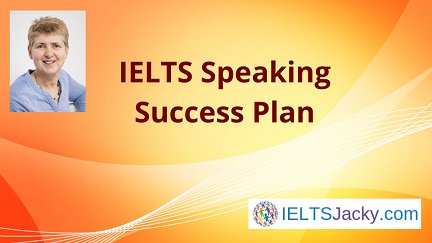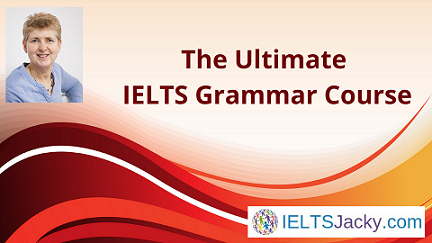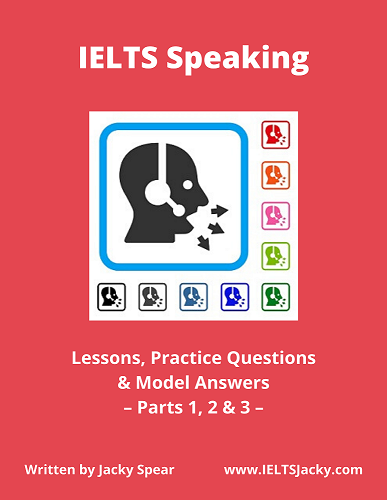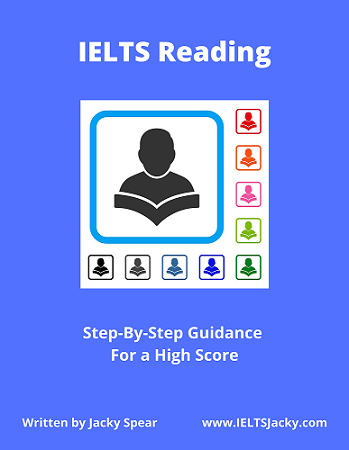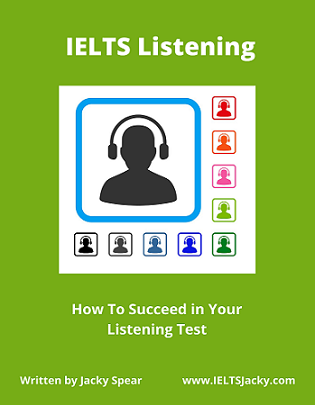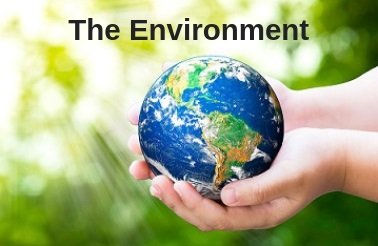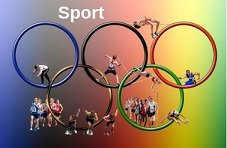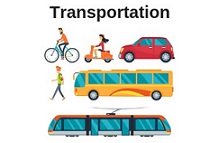IELTS Speaking Topics
– List of 40+ To Help You
Prepare –
There are hundreds of different IELTS Speaking topics that could come up in your test but most of them fall into around 40 subject areas. We’ll look at them all on this page and discover common sub-topics within each.
Don’t panic when you see the
extensive list. The whole point of the IELTS exam is to assess your ability to
use the English language to communicate in a wide range of everyday situations.
Use it as a guide as you decide where to focus your learning when working to broaden
your vocabulary and improve your speaking skills.
All these potential IELTS Speaking topics are subjects that are part of most people’s lives or are common topics of conversation. Because of this, there are plenty of free online resources to help you learn about the subjects, such as articles, short videos and podcasts. Follow the link to ‘Resources’ in the top menu bar for some ideas as to where to get started.
It takes a long time to prepare for the exam and lots of practise, so take your time and work on improving your English step-by-step, one day at a time. The harder you work, the quicker the progress you’ll make.
The material I’ve created for you on this website is designed to help speed up the process and save you hours of work searching for the information you need.
So, let’s get down to identifying the IELTS Speaking topics you might get in your exam. We’ll start with Part 1.
Part 1
Part 1 questions shouldn’t present you with any problems at all as you’ll be asked about you and your life. The questions could be on almost any subject but the most common topics are:
- Your home
- Your family
- Your work or study
- Your home town
- Your likes or dislikes
- Your interests
 It will be easy to answer questions about your family.
It will be easy to answer questions about your family.This first part of the test lasts for 4-5 minutes. You'll probably get around 12 questions in all and they only require short answers – the main fact and perhaps one additional piece of information.
You’ll find sample questions and answers on all
the IELTS topics vocabulary pages. See the menu in the sidebar.
For full details of the IELTS Speaking Test format and tips on mistakes to avoid, click this link.
Parts 2 & 3
In Part 2, you’ll be asked to talk for up to 2 minutes on just one topic that the examiner will give you written on a cue card. You’ll have one minute to make notes which you can refer to during your talk.
Part 3 questions will be related to your Part 2 topic but more abstract in nature, that is, they’ll be about ideas and concepts rather than about you and your experience of the topic. Your answers should contain more detail than for Part 1 answers.
Check out the sample answers on the vocabulary pages listed on the sidebar.
Now for the list of IELTS Speaking topics. It isn’t exhaustive and new topics are added each year. However, these are the most common subjects and you'll be asked questions on some of them during your IELTS exam.
If they don’t come up in your Speaking test, they could appear in the Writing, Reading or Listening parts of the exam.
IELTS Speaking Topics
Under each topic heading, I’ve listed common sub-categories and some popular Part 2 subjects.
Accommodation: types of accommodation, owning versus renting, making a home, favourite room, dream home.
Advertising: advertising media, influence of advertising, sponsorship, ethical advertising.
Animals: animal rights, testing on animals, hunting & poaching, local wildlife & wild animals, endangered animals, animal protection, zoos, pets, vegetarianism.
Architecture & Buildings: styles of architecture, parts of a building, rooms, building materials, functions of different buildings, describe a historic building, describe a modern building, green/eco-friendly buildings.
Art: favourite painting or work of art, favourite artist, visit to a gallery or exhibitions, importance of art, art & culture, art in schools.
 You might be asked if you like modern art.
You might be asked if you like modern art.Books & Reading: favourite book, last book read, influential book, reading preferences, reading habits, ebooks.
Business: starting a business, entrepreneurship, running a small business, family businesses, business or business owner you admire, local businesses versus multinationals, marketing & promotion, recruitment.
Charities: importance of charities, donating to charities, local & international charities, volunteering.
Clothes & fashion: clothing liked/dislikes, traditional clothing, workwear/uniforms, importance of fashion, clothes & culture, shopping for clothes.
Communication: forms of communication, importance of good communication, technology & communication, social media, describe an important conversation, communication in the future, communication across the age gap.
Crime: crime rate, punishment & prisons, internet crime, crime prevention, police, rehabilitation, capital punishment.
Daily routine: personal routine, importance of routines, favourite time of day, typical work day/weekend day.
Education: your studies, favourite subject, favourite or influential teacher, schooldays, college/university, teaching methods, pupil behaviour, technology in education, home-schooling, distance learning, studying abroad, education in developing countries, funding.
Environment: the natural world (wildlife, plant life, habitats, resources), environmental problems, protecting the environment, waste & recycling, climate change, global warming, renewable energy.
Family: details of own family, relationships with family members, family member you admire, typical family in your country, changing family values, roles of family members, parents, childhood, working parents, divorce, care for old people.
Film & TV: viewing habits, interesting or favourite film or TV programme, changing tastes, viewing media, impact of technology & the internet on entertainments industry.
Food: cooking, healthy eating, diet, special meal, favourite food, foods disliked, traditional foods, eating habits, vegetables, foreign food, restaurants, fast food, vegetarianism & veganism.
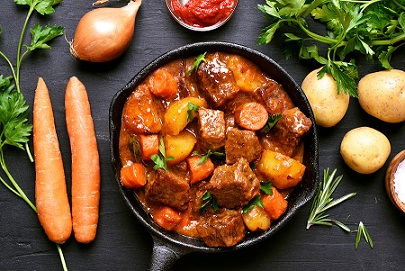
Food & diet are common IELTS Speaking topics.
Friends: about your friends, a special friend, a childhood friend, importance of friendship, qualities of a good friend, keeping in touch, making new friends, internet friendships.
Gender: gender equality, traditional roles of men & women, family roles of women & men, changing roles, stereotyping, gender & work, gender & education.
Global Issues: environmental issues such as climate change, problems in developing countries, poverty, how to help developing countries, international aid, immigration, globalisation, urbanisation, multi-cultural societies, conflict & war.
Government & Politics: what governments should be responsibe for, public services, public freedom, censorship, what governments should spend money on, effects of government policy locally, nationally & internationally.
Health: diet, healthy lifestyle, fitness & exercise, illness, health education, mental health, stress, alternative medicine, private healthcare, state health systems.
Hobbies & Leisure: your hobbies, popular hobbies, childhood hobby, hobby would like to try, importance of hobbies, leisure activities, a favourite place you like to go, museum visit.
Holidays: types of holidays, favourite type of holiday, favourite destination, home or abroad, holiday activities, describe a place visited, describe a tourist attraction, types of holiday accommodation, public/national holidays, holiday celebrations & festivals.
Language Learning: languages you’ve learnt/are learning/would like to learn, reasons for learning a foreign language, language learning methods, English as an international language, language learning in schools, immigrants and language.
Media: news sources (newspapers, TV & radio, internet), magazines, influence of large media organizations, government censorship, reliability of news, future of news reporting.
Money: importance of money, consumerism, saving money, problems money causes in society, desire to be rich.
Music: music you like/dislike, favourite style, favourite song, favourite/popular artist or band, changing tastes in music, instrument played/would like to play, favourite instrument, live music versus recorded music, traditional music, music in schools.
 The examiner may ask you what type of music you like.
The examiner may ask you what type of music you like.People (personality & character – physical appearance): describe a well-known person or someone you admire, describe someone you work or study with, describe yourself/a family member/a friend, describe the differences/similarities between two particular people.
Plants: describe a plant you like, plants you grow/have grown, what you know about plants/growing plants, your garden, describe a plant, flower or tree that is famous or important in your country.
Relationships: importance of close relationships, someone you have a close relationship with, important of marriage in society today, internet dating, workplace relationships.
Role models: describe a role model you’ve had, characteristics of a good role model, influence of a good role models, types of people who are respected in society, childhood hero, bad role models.
Shopping: favourite shop, favourite method of shopping, online shopping, changing shopping habits, local shops, a gift you bought for someone, creating a positive shopping experience, payment methods, influence & pressure of advertising.
Sport: favourite sport to watch, favourite sport to play, sport you’d like to try, ways to keep fit, how you keep fit, a good exercise, importance of fitness/daily exercise, value of playing a sport, a popular sport in your country/your national sport, sports salaries, sport in schools, sport & politics.
Technology: computers, the internet, favourite website, technology in the workplace, modern devices and gadgets, online shopping, impact of technology on education.
Tourism: importance of tourism in your country, positive effect on local area, effects on economy locally/nationally, negative effects on environment locally/globally, jobs in tourism, future of tourism, ecotourism.
Towns & Cities: describe your town/city, describe a city you know, like/dislike living in a city, advantages of city life, problems of city life, city would like to visit, challenges facing towns & cities, urbanisation, city problems.
Transportation: public transport, transport system in your country, traffic problems & solutions, road safety, transport in the future.
Travel & Journeys: your experience of foreign travel, countries visited/would like to visit, favourite country/region, advantages of foreign travel, ethics of foreign travel – carbon footprint, effects on environment, describe a long journey, describe a journey that didn’t go to plan, how you travel around your area/region.

Travel, holidays & tourism are all popular IELTS Speaking topics.
Water: describe a place near water, water activities, importance of drinking water, clean water – problems & solutions, water supply, questions related to rivers, lakes & seas.
Weather & Seasons: describing the weather or a season, favourite weather or season, problematic or extreme weather, weather forecasting, effect of weather on how people feel or what they do, effect of weather on jobs or transportation, climate change.
Work: your job, future plans, dream job, types of jobs, self-employment, important jobs, unemployment, work/life balance, women in the workplace, equality, child labour, employment issues, technology and work.
Other IELTS Speaking Topics
There are other subjects you could be asked about that don’t fit neatly into these IELTS Speaking topics. This is especially the case for Part 2.
It could be something abstract such as:
- Kindness
- Respect
- Happiness
- Beauty
- Boredom
- Punctuality
It may be something that’s important
to you such as:
- A special photograph
- An important object
- A
gift
In many ways, these types of IELTS Speaking topics are easier to talk about than any of the subjects in the main list because they’re about you, your experience or your opinion about something.
Whatever you get asked about, knowing some key topic vocabulary will help you create a good answer. You don’t need to learn every possible word or phrase but a good selection is a must.
Make good use of the topic vocabulary pages listed in the sidebar and spend time reading around the topics, watching videos and listening to podcasts about them. This is some of the best preparation you can do.
You'll find links to some excellent online resources via my main Resources page.
Like this page?
Other Pages About IELTS Speaking Topics
IELTS Speaking Test: Know the format & understand what you’ll be assessed on. Discover the main reason for low scores & how to avoid this big mistake.
IELTS Speaking Part 1: 7 simple methods for developing your answers, with examples.
IELTS Speaking Part 2: Test format, understanding cue cards & 5 test mistakes to
avoid.
Part 2 Planning Strategy - Method 1: ‘question prompt’ + planning notes & sample
answers.
Part 2 Planning Strategy - Method 2: ‘brainstorming’ + planning notes & sample answers.
Part 2 Planning Strategy - Method 3: ‘the 5 senses’ planning notes & sample answers.
Part 2 Introduction: How to begin
your IELTS Speaking Part 2 talk & top tips for gaining extra marks.
IELTS Speaking Part 3: 6 common types of questions & how to answer them.
IELTS Speaking Practise Questions – Download 30 full mock tests (30 practise cards on 30 topics – 330 questions altogether).
IELTS Speaking Tips: 9 top tips to increase your chances of getting a high score
IELTS Speaking Practice: Massively improve your speaking skills by learning how to think in English.



